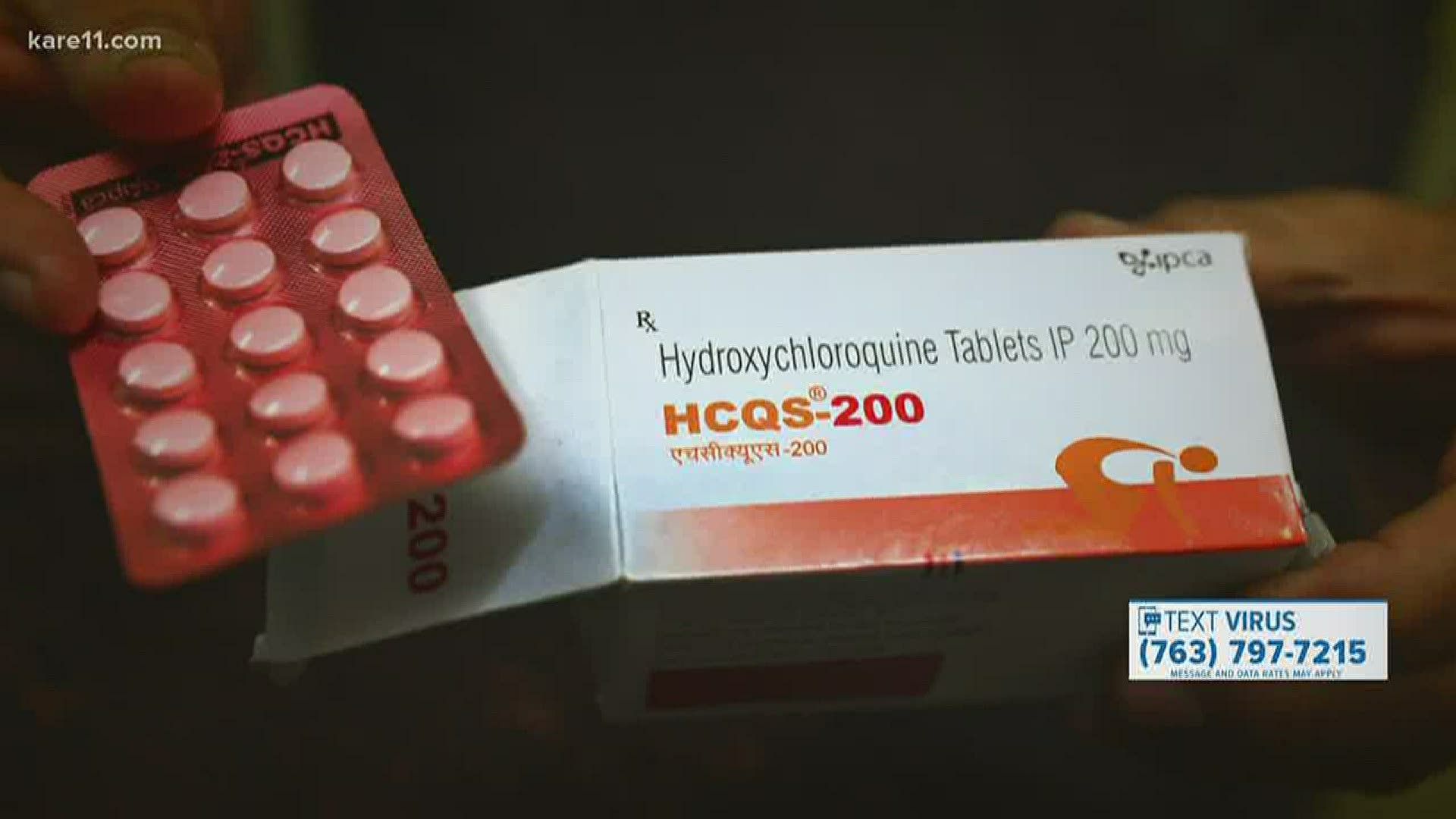MINNEAPOLIS — Hydroxychloroquine has become a household name during daily White House coronavirus briefings, with President Trump often hyping the drug's prospects for combating COVID-19.
"I'm not a doctor, I'm just saying we hear great results," Trump said on April 7th. "And I really think it's a great thing to try, just based on what I know."
"He gets very excited about it," said Dr. David Boulware, an infectious disease physician-scientist at the University of Minnesota. "There's a lot of enthusiasm about it but, at present, we don't know if the drug works at all."
Dr. Boulware has been working on remedying that for three weeks now. He is overseeing multiple, nationwide, hydroxychloroquine trials. University of Minnesota pharmacists are dispensing the drug and researchers are then mailing it to participants who sign up for one of three online trials.
Trial 1: Can hydroxychloroquine help prevent, or lessen, the severity of COVID-19 symptoms in those with known exposure to confirmed cases?
Open to: People who have had high-risk exposure to a confirmed case but have yet to experience any symptoms. Exposure could have come at work, or from living with someone who has a confirmed case.
Trial 2: Is hydroxychloroquine an effective early treatment for COVID-19 patients?
Open to: People with confirmed cases of COVID-19 who are in the first four days of therapy and are not currently hospitalized.
Trial 3: Can hydroxychloroquine help prevent, or lessen the impact of COVID-19 prior to exposure?
Open to: High-risk professions like first responders and healthcare workers with a high likelihood of coming into contact with the virus.
Dr. Boulware: "We want to see if we can give preventative medicine beforehand to prevent healthcare workers from getting sick."
Kent Erdahl: "To be clear, is there any evidence early on that is really promising with this, in terms of (your trials)?"
Dr. Boulware: "We're doing a sort of proper randomized trial and so half the patients get the hydroxychloroquine and half of them get a placebo. They don't know what they are receiving and I don't know what they are receiving. I know some people who have gotten sick in the prevention trial but I don't know what they have received."
Early success stories reported elsewhere have largely been anecdotal or resulted from non-randomized trials. For example, Dr. Boulware says a recent trial out of France earned high praise in a tweet from President Trump, despite several notable flaws.
Dr. Boulware: "Investigators basically removed the patients who did badly on the medicine and then just analyzed the people who did really well. All of this is great (news) but they excluded 20-23 percent of the people who did badly. That sort of bias is generally not acceptable."
Erdahl: "Do you worry about all of this sending the wrong message right now?"
Dr. Boulware: "I do. This is a medicine with certain side-effects. People can have allergic reactions, people can have heart problems, so, at present, it does not make sense to use this broadly."
But he says it does makes sense to sign up for a trial if you qualify. All three still need hundreds of volunteers before they are full. The faster that happens, the faster we'll all get the answers we're waiting for.
"I think, ultimately, we will know in a few weeks whether this hydroxychloroquine actually works or does not work," Dr. Boulware said. "There's a good chance it may not work at all. If it works it is a game changer, but similarly, if it doesn't work, we need to really not be using it because there are people that do use this on a daily basis."
To learn more about the trials and how to enroll, click here.
KARE 11’s coverage of the coronavirus is rooted in Facts, not Fear. Visit kare11.com/coronavirus for comprehensive coverage, find out what you need to know about the Midwest specifically, learn more about the symptoms, and see what companies in Minnesota are hiring. Have a question? Text it to us at 763-797-7215. And get the latest coronavirus updates sent right to your inbox every morning. Subscribe to the KARE 11 Sunrise newsletter here. Help local families in need: www.kare11.com/give11.
The state of Minnesota has set up a hotline for general questions about coronavirus at 651-201-3920 or 1-800-657-3903, available 7 a.m. to 7 p.m.
There is also a data portal online at mn.gov/covid19.

